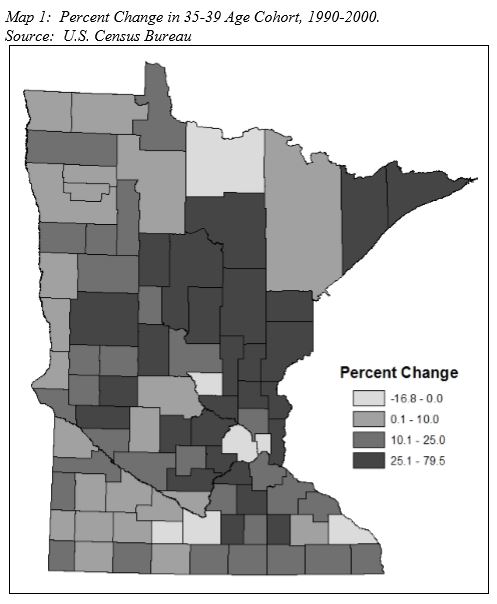Is Rural America Dying? Rewriting the Rural Narrative, Ben Winchester, U of M
Part 3 of Brain Gain By Marijo Vik www.normancountynewsonline.com
“Everything seemed to be doom and gloom,” Ben Winchester said, “It was about out-migration, it was about our dying towns, we’re losing our churches, we’re losing our schools. I quickly realized that our future wasn’t so bleak, but we keep describing ourselves in a very negative light. And it starts to get to you after a while.”
Winchester is a Research Fellow for the University of Minnesota Extension Center for Community Vitality. He was speaking at a conference titled “Rewriting the Rural Narrative: the ‘Brain Gain’ of Rural America” in Thief River Falls Feb. 7.
Winchester is a data geek. He said, “The subtitle here is ‘Speak Softly and Carry Statistics.’”
“No more anecdata,” Winchester said. “Anecdata is information which is presented as if it is based on serious research but is in fact based on what someone thinks is true.”
Internationally, the term “brain drain” is used to describe the loss of the top educated and skilled people in a country as they move from their home to another country.
In the United States, and specifically in rural development literature, the definition is generally the loss of high-school graduates to metropolitan areas. We need to question the appropriateness of using this term as we do in rural development.
Winchester said, “When we do work more in-depth, we find that certain age groups leave. So when you’ve got a lot of children leaving your small town after high school graduation, and you’ve got anywhere from 30 to 50 percent who leave, that’s not new. It’s happened from the beginning of time.”
“Even in 75 percent of the rural counties that lose people overall, there’s still this brain gain,” Winchester said. “So we’re losing our high school kids with a high school education but the people who move into these communities have careers, life experience and families and we’re gaining. So whether you call it ‘brain drain’ or ‘brain gain,’ it’s basically ‘brain circulation.’ From a social capital perspective, it’s vital that you encourage migration to and not from.”
This map shows that nearly every rural county in Minnesota experienced a growth in the 35-44 year old cohort. This migration has occurred even in the southwestern portion of the state where, overall, total population has declined. However, we now see that even in the midst of total population decline, there is growth. The only counties that witnessed losses in this age cohort are Benton, Blue Earth, Hennepin, Koochiching, Ramsey, Watonwon and Winona.

